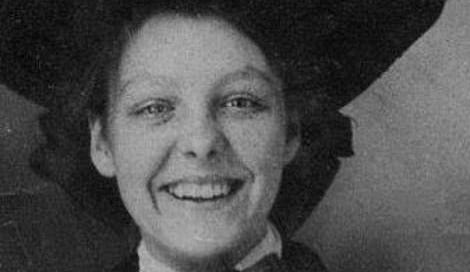How to Understand the Depth of Research Needed for Authentic Historical Portrayals
Research Should Inform Your Work, Not Dominate It. (Plus A Checklist)
1. Ask for Help Early in the Process
Getting advice at the start can save you from later frustrations. Historical accuracy is a delicate balance—knowing when to lean on an expert ensures you’ll catch the details that matter without letting the small stuff bog you down. Whether it’s consulting someone with deep historical knowledge or finding resources that are beyond your reach, early help can lay a solid foundation.
2. Self-Doubt Is Normal Throughout the Creative Journey
No matter your role—actor, writer, or director—self-doubt will creep in at various stages. Historical settings, characters and events are complex, and questioning yourself is part of the process. Embrace it. The key is to press on despite uncertainty. Overcoming that hesitation can drive deeper creative exploration and richer portrayals.
3. Don’t Fall into the Research Rabbit Hole
It’s easy to get overwhelmed by the vastness of historical material, or details like costume, etiquette or dialect… Know when to stop. Often, creators dive into endless archives, getting so lost in the weeds that it stifles their progress. Interviewing yet another eyewitness seems busy; but are they actually contributing new insights? Or not?
Identify key points to study and stick to them, using historical consultants if needed to steer your focus. Remember: Your project doesn’t need every possible fact, just the ones that bring the story to life.
4. Learn “Just Enough” to Get Started
Many actors, writers and directors hesitate to begin until they feel they’ve mastered every aspect of the period or character they’re studying. But there’s power in starting before you feel fully prepared. Dive into the work with a basic understanding, and allow the deeper research to flow organically as you progress. Once you have a grip on your material, the gaps will naturally reveal themselves.
You’ll never feel fully prepared, and that’s okay.
5. Incorporate Research Throughout, Not Just at the Beginning
Research isn’t a one-and-done activity; a giant block of work at the very beginning of your project! Instead, think of it as an evolving part of your creative process. As you shape your script, performance, or direction, new questions will arise. This is where ongoing research, interviews with experts, or even revisiting primary sources can fine-tune your work. You’ll gain new insights that elevate the final product.
6. Travel to the Setting, If Possible
When it comes to understanding a place and its history, there’s no substitute for physically being there. If your story allows, travel to the location and experience the atmosphere for yourself. The smells, sights, and sounds of a place often reveal truths that no amount of written or recorded history can. These sensory details can greatly enhance your portrayal or creative decisions. (I’ll write a guide on this in near future, so if this is helpful, subscribe and you’ll get the guide via email.)
7. Original Sources Are Key
There’s nothing like diving into original documents, videos, or recordings of your character or time period. These firsthand accounts carry an authenticity that secondary sources can’t match. By reading original letters, watching period films, or listening to historical figures speak, you’ll gain a better grasp of their world, behaviour, and the subtle nuances that shaped their actions.
8. Avoid Overpreparation as a Writer or Actor
There’s a fine line between knowing enough and knowing too much. For actors, it’s important to leave room for spontaneity and emotional connection to the character. Overpreparation can stifle your performance, making it feel mechanical. Instead, absorb the historical background and trust your instincts when stepping into the character’s shoes.
9. Use Experts to Fill in Gaps
No matter how much research you do, there will always be blind spots. This is where experts come in handy. Historical consultants can help you avoid critical mistakes and can often point you to resources or perspectives you hadn’t considered. They’re a great resource when you’re running out of time and need efficient, accurate insights.—I myself have a vast network of over 200 historians, archivists, archaeologists and museum curators. If I need a particular piece of information, I can often get it with just one phone call.
10. Eyewitness Accounts and Expert Interviews Add Depth
Whenever possible, interview people who have firsthand experience with the period or events you’re depicting. Their personal stories provide a level of depth and emotional resonance that you can’t get from books. Even if your character is fictional, these accounts will help you understand the mindset and emotions of people from that era.
11. Stay on Track—Don’t Let Research Overshadow Creativity
Whether you’re writing, directing, or acting, it’s important not to lose sight of your creative goals. Research should inform your work, not dominate it. Know when to step away from your notes and begin crafting your story or performance. The richness of the historical setting will emerge naturally as you stay true to the essence of the narrative.
12. Just Enough Is Good. Start Before You Feel Ready
You’ll never feel fully prepared, and that’s okay. Too much research can become an excuse to delay. Instead, trust that you have enough to begin. Start creating, and let the research fill in as needed along the way. Historical accuracy is crucial, but so is momentum—your creativity thrives when you push forward, even amid uncertainty.
~ Barbara
Historian with German precision. Unreasonably fast reader 📚. 800 pages before lunch ☕. Helps actors & writers prepare biopics 🎬 and historical roles using forgotten archives, letters, and diaries 📜. More at https://withdrbarbara.com/




